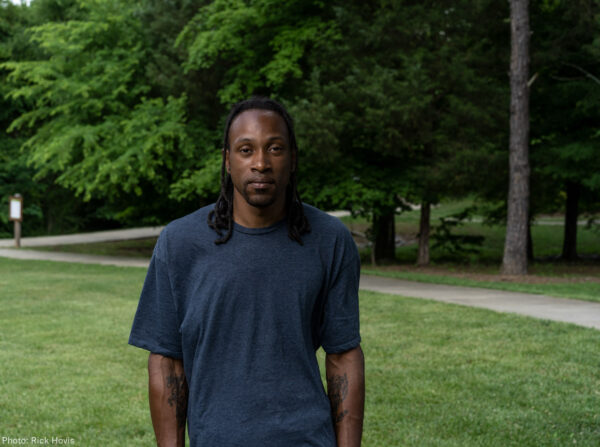Criminal Law Reform
Featured
Arizona
Oct 2023

Criminal Law Reform
Racial Justice
Fund for Empowerment v. Phoenix, City of
Fund for Empowerment is a challenge to the City of Phoenix’s practice of conducting sweeps of encampments without notice, issuing citations to unsheltered people for camping and sleeping on public property when they have no place else to go, and confiscating and destroying their property without notice or process.
U.S. Supreme Court
Sep 2023

Criminal Law Reform
McElrath v. Georgia
Does the Double Jeopardy Clause bar an appellate court from reviewing and setting aside a jury’s verdicts of acquittal on the ground that the verdict is inconsistent with the jury’s verdict on other charges?
U.S. Supreme Court
Jun 2023

Criminal Law Reform
Pulsifer v. United States
This case involves the interpretation of a federal law that allows defendants to avoid mandatory minimum sentences for certain nonviolent drug crimes, allowing judges to impose sentences tailored to their individual circumstances.
Texas
Jul 2021

Criminal Law Reform
Prisoners' Rights
Sanchez et al v. Dallas County Sheriff et al
Decarceration has always been an emergency, a life and death proposition, but COVID-19 makes this effort intensely urgent. The ACLU has been working with our partners to litigate for the rights of those who are incarcerated and cannot protect themselves because of the policies of the institutions in which they are jailed.
All Cases
133 Criminal Law Reform Cases

North Carolina
Mar 2022
Criminal Law Reform
Racial Justice
Johnson v. Jessup
The American Civil Liberties Union (ACLU), ACLU of North Carolina, Southern Poverty Law Center (SPLC), and Southern Coalition for Social Justice are suing the North Carolina Division of Motor Vehicles (DMV) for indefinitely revoking driver’s licenses of people who cannot afford to pay traffic tickets. North Carolina’s wealth-based license revocation system impacts hundreds of thousands of people each year, preventing them from driving legally to support themselves and their families. This system funnels people unable to pay traffic tickets, particularly people of color, into cycles of debt, traffic violations, and poverty in violation of the Fourteenth Amendment’s promises of due process and equal protection under the law.
Explore case
North Carolina
Mar 2022

Criminal Law Reform
Racial Justice
Johnson v. Jessup
The American Civil Liberties Union (ACLU), ACLU of North Carolina, Southern Poverty Law Center (SPLC), and Southern Coalition for Social Justice are suing the North Carolina Division of Motor Vehicles (DMV) for indefinitely revoking driver’s licenses of people who cannot afford to pay traffic tickets. North Carolina’s wealth-based license revocation system impacts hundreds of thousands of people each year, preventing them from driving legally to support themselves and their families. This system funnels people unable to pay traffic tickets, particularly people of color, into cycles of debt, traffic violations, and poverty in violation of the Fourteenth Amendment’s promises of due process and equal protection under the law.

U.S. Supreme Court
Feb 2022
Criminal Law Reform
Hemphill v. New York
Whether, or under what circumstances, a criminal defendant who opens the door to responsive evidence also forfeits his right to exclude evidence otherwise barred by the Constitution’s Confrontation Clause.
Explore case
U.S. Supreme Court
Feb 2022

Criminal Law Reform
Hemphill v. New York
Whether, or under what circumstances, a criminal defendant who opens the door to responsive evidence also forfeits his right to exclude evidence otherwise barred by the Constitution’s Confrontation Clause.

U.S. Supreme Court
Jan 2022
Criminal Law Reform
Racial Justice
Concepcion v. United States
Whether a district court must or may consider intervening legal and factual developments when deciding if it should “impose a reduced sentence” on an individual under Section 404(b) of the First Step Act of 2018, which was enacted to ameliorate the unjust sentences imposed by overly harsh treatment of crack cocaine offenses under prior law.
Explore case
U.S. Supreme Court
Jan 2022

Criminal Law Reform
Racial Justice
Concepcion v. United States
Whether a district court must or may consider intervening legal and factual developments when deciding if it should “impose a reduced sentence” on an individual under Section 404(b) of the First Step Act of 2018, which was enacted to ameliorate the unjust sentences imposed by overly harsh treatment of crack cocaine offenses under prior law.

U.S. Supreme Court
Dec 2021
Criminal Law Reform
Lombardo v. City of Saint Louis, 20–391
Whether a reasonable jury could find that police officers violate the Constitution’s prohibition on excessive force when they kill a shackled and handcuffed arrestee inside of a jail cell by holding him face-down on the ground and pressing into his back until he suffocated, also known as compression asphyxiation.
Explore case
U.S. Supreme Court
Dec 2021

Criminal Law Reform
Lombardo v. City of Saint Louis, 20–391
Whether a reasonable jury could find that police officers violate the Constitution’s prohibition on excessive force when they kill a shackled and handcuffed arrestee inside of a jail cell by holding him face-down on the ground and pressing into his back until he suffocated, also known as compression asphyxiation.

U.S. Supreme Court
Dec 2021
Criminal Law Reform
Caniglia v. Strom
Whether the “community caretaking” exception to the Fourth Amendment’s warrant requirement extends to the home.
Explore case
U.S. Supreme Court
Dec 2021

Criminal Law Reform
Caniglia v. Strom
Whether the “community caretaking” exception to the Fourth Amendment’s warrant requirement extends to the home.
